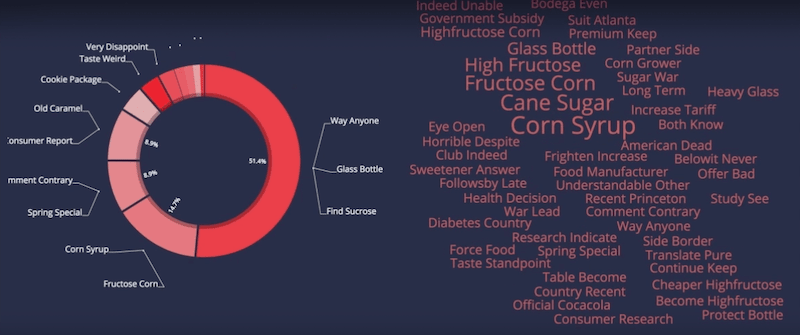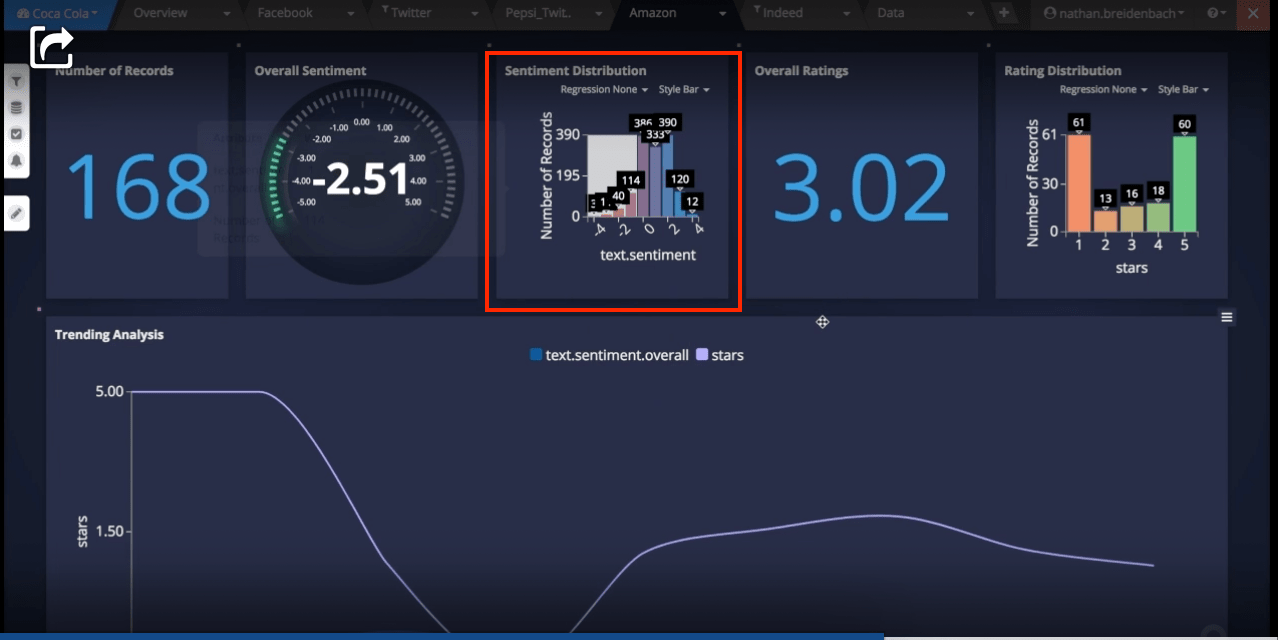Unlocking the Beverage Industry's Potential with AI
/For years, the beverage industry has been dominated by longstanding brands with accumulated clout. This name recognition has been a boon for business, but trends are changing. Millennials are turning away from mainstream options to embrace growing niche markets. These new kids on the beverage block offer fresher options and healthier products. We can observe this with most notably with soft drinks and beer.
However, mega brands aren’t going gently into that good night. Stratifyd’s analytics platform allows large brands to be nimbler than ever before. Using aggregated data and consumer feedback, beverage makers can adapt to changing markets and keep their fingers on the market’s pulse. Let’s examine how AI can help brands craft balanced strategies:
Tackling Evolving Markets with Metrics
Beverage makers face daunting challenges, yet those difficulties are largely consequences of murky market knowledge. AI tools give companies a leg up by taking a data-driven approach. We can gather online reviews, parse user ratings, analyze written feedback, and even tap into social media to paint a well-rounded picture.
Previously, businesses would do this manually by making employees collect feedback from online sources. Consequently, insights were generated quite laboriously. Reading reviews from multiple sources takes time, as does highlighting relevant portions of those reviews. With Stratifyd AI, companies can perform related analysis in mere minutes without hiring specialists.
Harnessing the Dashboard
Thanks to artificial-intelligence algorithms, we can automate these processes across a variety of channels. Furthermore, we can quantify these insights in a variety of ways. Our platform contains a suite of integrated tools to make anyone a data scientist, without extensive education or training:
A key analytical component is the dashboard, which displays pertinent information at a glance. We allow you to organize data tiles by preference, making inspection simple. For example, you may be interested in the number of users polled, or feedback distribution from poor to excellent. You can consume this data via figures and specialized infographics.
These infographics have to originate somewhere, and that process begins with our AI. Written feedback is translated using natural-language processing. Algorithms analyze written content, picking out pertinent info based on sentiment and popularity. Keywords are paramount here. Our platform makes it easy to analyze reviews and extract common terms or phrasing found throughout multiple feedback channels. We can also draw associations between terms and ratings:
A Quick Note on Social Media
Beverage companies can leverage this data to improve their products. Twitter and Facebook users might have different collective outlooks on certain brands. These platforms also differ demographically. From here, it becomes easier to see the big picture based on audience type. These companies can shift marketing and production strategies in response to customer opinion. This will boost customer retention by catering to evolving tastes—which we can observe in granular fashion.
They can also compare how comments about their own brand compare to those regarding competitors. The beverage market is fiercely competitive, and AI gives companies a modern leg up instead as opposed to starting from square one. These brands are in a unique position to remedy their shortcomings while harnessing market trends.
The Coca Cola Example and Filtering
These algorithms are incredibly flexible. Let’s tackle the example of Coca Cola, based on a sample of 1,413 Amazon reviews. These give us a snapshot of overall customer sentiment:
Here, we see big-picture results, like overall rating, ratings distributions, and sentiment score. Our platform really shines when taking a more detailed look. Beverage makers can achieve this by applying filters, which adjust available data tiles in real time.
Accordingly, we can take our sentiment graph (below, highlighted) and drag to highlight only the negative reviews. This allows us to view what customers dislike about various products or branding strategies:
Companies can see review ratios and focus on potential improvements. The feedback we highlight can include everything below average (via the bell curve), or anything starkly negative. This can help beverage makers identify the lowest-hanging fruit and thus the quickest path to success.
If there’s a plethora of data to sort through, companies can choose from different algorithms tailored to accuracy or speed. Depending on machine learning or language-processing requirements, it may be advantageous to sacrifice some accuracy for efficiency. We allow users to make their own decisions in this regard, though there are no wrong choices.
Comparing Multiple Brands Simultaneously
We’ve examined how to assess product feedback for one brand, but what about multiple brands side by side? Thankfully, our tools make this easy when using suitable data sources. Consider Beer Advocate, a popular ratings-and-reviews site. The brewing world is particularly diverse and presents fewer barriers to entry.
That means companies must often measure themselves against both powerhouse brands and emerging brewers. As one might expect, these comparisons are vital to determining market performance.
Beer Advocate allows everyday users and curious companies to measure product reception in a crowded space:
The more records a brewer has, the more likely people are talking about the brand. Beer Advocate is predicated upon user reviews and product samplings, requiring users to leave feedback based on satisfaction. In views like these, we can see what all the buzz is about.
————————
Overall, Stratifyd AI has the power to impact the beverage industry on a grand scale. Our AI solutions are fast, accurate, and scalable. In addition, dashboard tools and data visualization are highly accessible. Beverage makers no longer have to make guesses as to what strategies are most effective.





